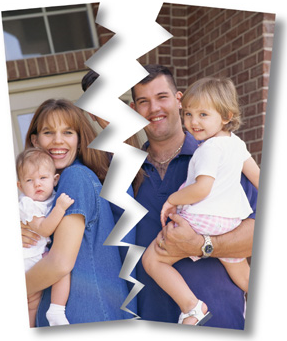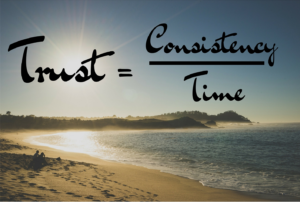 “God hates divorce.” This Scripture, taken from the book of Malachi, is commonly used by friends, family, and pastoral counselors. I struggled for years with this decree, as I know others have in situations similar to my own. Although I was an abuse victim, my love for the Lord and my desire to please Him fueled my unrealistic belief that, between my faith and the Lord’s intervention, my abuser would change. In truth, my former husband did not want to change, and my desire to keep my marriage whole – at the expense of our family – was both foolish and destructive.
“God hates divorce.” This Scripture, taken from the book of Malachi, is commonly used by friends, family, and pastoral counselors. I struggled for years with this decree, as I know others have in situations similar to my own. Although I was an abuse victim, my love for the Lord and my desire to please Him fueled my unrealistic belief that, between my faith and the Lord’s intervention, my abuser would change. In truth, my former husband did not want to change, and my desire to keep my marriage whole – at the expense of our family – was both foolish and destructive.
In truth, God hates divorce, not because it occurs, but because it is necessary. And Jesus made that clear when the Pharisees tried to corner Him on the issue (Matthew 19). Jesus emphatically asserted that God despises men’s practice of “putting away” their wives, abandoning them emotionally, and putting them in limbo rather than providing them with a written divorce as commanded in Deuteronomy. The Pharisees again asked why God then allowed divorce, and Jesus pointed the finger back at them: “Because of the hardness of your hearts.” Yes, God hates divorce – it should be unnecessary to protect some because of the hardened hearts of others. What He would certainly prefer is the fulfillment of the biblical model of Christ and His love for His bride, the church.
By extension, God does not hate divorced people. For those of us who have been compelled – even by the Holy Spirit – to pursue divorce, our inclination is to question whether, in seeking or accepting divorce, we therefore risk forfeiting the blessing and protection of God.
This dreadful, lesser-of-two-evils scenario makes us feel trapped. We feel we must choose whether to be abandoned emotionally or be abandoned spiritually! Thankfully, that is not God’s intent. This terrible assumption is diametrically opposed to the nature and character of our loving, protective Father-God. Believing women who contact me consistently express these same fears.
In spite of the judgments of the church, I have held to what I know about God’s priorities based upon my encounters with Him and the leading of the Holy Spirit. Yet, I have struggled to fully understand how I might account for such grace in my own life, recognizing that the Lord certainly did not merely make an exception for me. Either I was in denial, or God’s grace and affirmation was similarly extended to others in like circumstances. I just couldn’t pin down how or why the church and well-meaning believers have been misguided in issues affecting divorce.
With this in mind, I am so pleased to have found a book that biblically confirms what I have known in my spirit to be true.
Pastor Walter Callison has written a book called, “Divorce: A Gift of God’s Love,” that carefully and biblically articulates God’s consistent view of marriage and divorce.
His thorough analysis of the original meaning of the word sometimes interpreted “divorce,” both in Malachi and Matthew sheds much-needed light on the intent and the heart of God. There is much truth that emanates from his worthy analysis, and I am confident that Pastor Callison’s work will bring the light of truth and peace to many God-fearing believers who, in addition to the stress of a volatile or ungodly relationship, are saddled with a misplaced burden of guilt and fear.
Certainly, divorce is not to be taken lightly. Each of us must be wise to pray and respond according to the promptings of the Holy Spirit. In doing so, we will bring honor to God and enjoy His blessing on our lives.
It is my pleasure to encourage others in like circumstances to consider Pastor Callison’s book, “Divorce: A Gift of God’s Love.”
 In response to an initial introduction and the typical inquiries of new acquaintances, I will generally begin by saying that I am married and have four children. In truth, I am a mother of five children. One has gone on before me.
In response to an initial introduction and the typical inquiries of new acquaintances, I will generally begin by saying that I am married and have four children. In truth, I am a mother of five children. One has gone on before me.
 Can the abuser change? The short answer: Yes.
Can the abuser change? The short answer: Yes.

